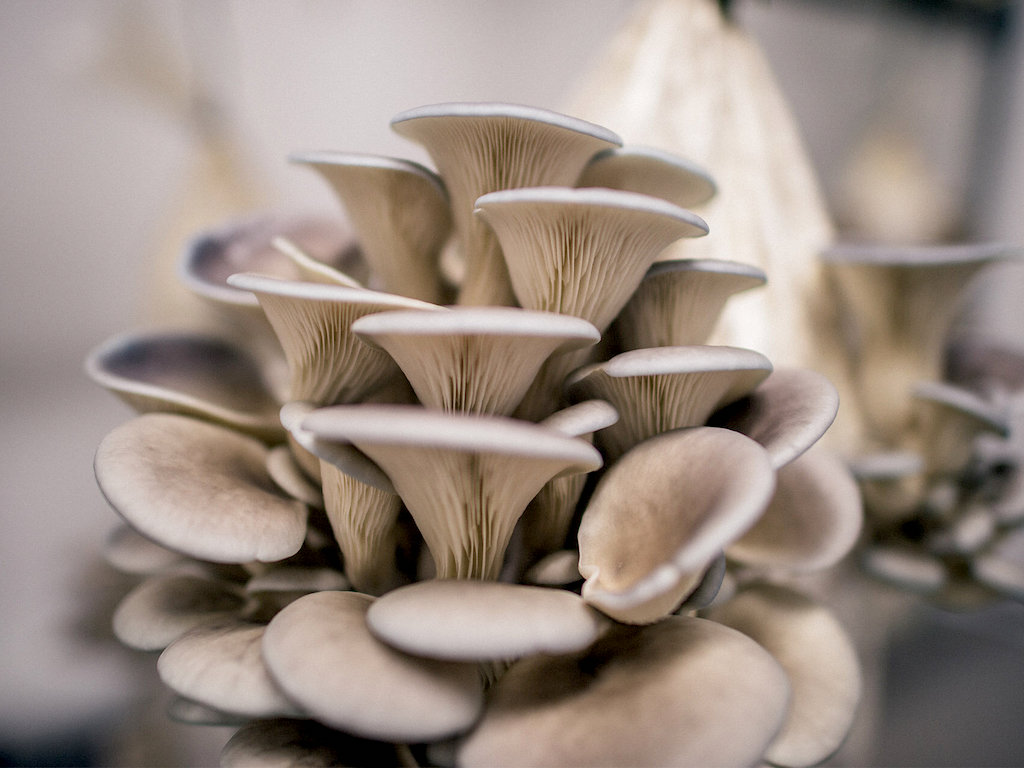3 Mins Read
Mushrooms aren’t getting quite the respect they deserve – until now. Recently, the edible fungus is making headlines for being a key solution for a number of global issues, from offering people in war-torn societies agency over their food supply to providing nutrition and fighting hunger. And as global heating continues to threaten crop yields all over the world, the easy-to-grow climate-resilient mushroom might just help boost food security all the while becoming the next eco-friendly alternative ingredient to carbon and resource-intensive animal protein.
Bakeries are at the centre of food culture in Syria and many other countries across the Middle East. The importance of bread can hardly be overstated as the backbone of any Syrian meal. But the years-long Syrian civil war has seen the regime launch airstrikes on bakeries as a tactic to control food supplies to key regions. Widespread humanitarian aid blockades have made food even more scarce a resource.
To give citizens more control over their own food supply, Turkey-based humanitarian nonprofit Ghiras Al Nahda believes that mushrooms are a solution. In 2014, the organisation partnered up with scientists at the Nwat Centre for Scientific Studies to begin developing mushroom growing kits that families could use to plant at home and keep hunger at bay. After 3 years of research, the NGO distributed 3,200 kilograms of mushrooms to the local community in besieged Eastern Al Ghouta, an area on the outskirts of the Syrian capital Damascus.
Mushrooms are cheap and can be easily cultivated at home with the help of substrate materials that can be found outside, such as wood, straw and leaves. All types of edible mushrooms contain varying amounts of protein and fibre, as well as important nutrients such as B vitamins and selenium, an antioxidant that supports the immune system and prevents cell damage.
Aside from keeping Syrian families away from hunger with nutritious produce, the easily-grown fungi is also high in vitamin D – which is found in few foods, but is vital to help regulate mood, but also bone, teeth and muscle health. With most people living in besieged areas spending much of their days under basements, their access to vitamin D via sunlight is severely restricted, making mushrooms a crucial source of the nutrient.

By the end of January 2018, the NGO had successfully taught a number of locals to harvest mushrooms in their sunless basements, providing “people with food with high protein value in the most dangerous place to live in the world.”
But beyond offering an avenue for communities in difficult circumstances to maintain a reliable, nutritious food supply, mushrooms are a powerhouse food that is resilient to many of the climate changes the world is facing. Crop yields of many staple foods have already been affected by global heating and unpredictable weather patterns, but some varieties of fungi such as oyster mushrooms can thrive in hot temperatures.

What’s more – they produce a tiny carbon footprint and its natural umami flavour and texture can be incorporated in plant-based protein alternatives to help the world transition away from carbon and resource-intensive animal agriculture. One company, Fable Food Co, is already doing this. On a mission to help bring about a sustainable global protein supply, the Australia-based food tech is manufacturing vegan pork and beef analogues using 65% mushroom ingredients.
So from low-carbon and climate-resilient mushroom meat to a reliable nutritional powerhouse for those facing food insecurity, it seems as though the days of underrating mushrooms are over.
Lead image: Mushrooms have become a key food staple for many people in war-torn regions and refugee camps in Syria, Source: AFPTV.



